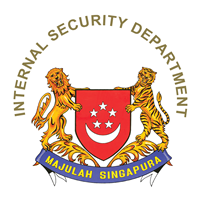
Lee Kuan Yew, often referred to by his initials LKY, was a Singaporean statesman and lawyer who served as the first Prime Minister of Singapore from 1959 to 1990, as well as Secretary-General of the People's Action Party from 1954 to 1992. He was the Member of Parliament (MP) for Tanjong Pagar from 1955 until his death in 2015. Lee is widely recognised as the founding father of the modern Singaporean state, and for his leadership in turning it into a highly developed country under his tenure.

The People's Action Party is a major conservative centre-right political party in Singapore and one of three contemporary political parties represented in Parliament, alongside the opposition Workers' Party (WP) and Progress Singapore Party (PSP).

Barisan Sosialis was a political party in Singapore. It was formed on 29 July 1961 and officially registered on 13 August 1961 by left-wing members of the People's Action Party (PAP) who had been expelled from the PAP. The prominent founding members of the Barisan were Lee Siew Choh and Lim Chin Siong. It became the biggest opposition party in Singapore in the 1960s and the 1980s.

Operation Coldstore was the code name for a covert security operation executed in Singapore on 2 February 1963 which led to the arrest of 113 people, who were detained without trial pursuant to the Preservation of Public Service Security Ordinance (PSSO). In official accounts, the operation was a security operation "aimed at crippling the Communist open front organisation," which threatened Singapore's internal security. The operation was authorised by the Internal Security Council which was composed of representatives from the British government, Singaporean government, and the Malayan Federal government.

Lim Yew Hock was a Singaporean-born Malaysian politician and diplomat who served as Chief Minister of Singapore between 1956 and 1959. He was the Member of Parliament (MP) for Cairnhill between 1959 and 1963 and previously a Member of the Legislative Council and later Legislative Assembly between 1948 and 1963. He was de facto Leader of the Opposition between 1959 and 1963. He and his family elected to take up Malaysian citizenship after Singapore's independence from Malaysia.

The Cabinet of Singapore forms the executive branch of the Government of Singapore together with the President. It is led by the Prime Minister who is the head of government. The prime minister is a Member of Parliament (MP) appointed by the president who in the president's judgment is likely to command the confidence of the majority of the Members of Parliament (MPs). The other Ministers in the Cabinet are Members of Parliament appointed by the president acting in accordance with the advice of the prime minister. Ministers are prohibited from holding any office of profit and from actively engaging in any commercial enterprise.
Lee Hsien Yang is a Singaporean businessman and former brigadier-general. A prominent member of the Lee family, he is the younger brother of Lee Hsien Loong and the youngest son of Lee Kuan Yew, the founding prime minister of Singapore.
The following lists events that happened during 1980 in Singapore.
The following lists events that happened during 1965 in Singapore.
The following lists events that happened during 1964 in Singapore.
The following lists events that happened during 1962 in Singapore.
The following lists events that happened during 1961 in Singapore.
The following lists events that happened during 1960 in Singapore.
The following lists events that happened during 1959 in Singapore.

The Internal Security Department (ISD) is the domestic intelligence, counter-espionage and security agency of Singapore under the purview of the Ministry of Home Affairs (MHA). It is tasked to confront and address security threats ranging from subversion or sedition, spying or espionage, foreign influence, domestic or international terrorism, political or religious extremism, and fraud against the state.

Singapore, officially the State of Singapore, was one of the 14 states of Malaysia from 1963 to 1965. Malaysia was formed on 16 September 1963 by the merger of the Federation of Malaya with the former British colonies of North Borneo, Sarawak and Singapore. This marked the end of the 144-year British rule in Singapore which began with the founding of modern Singapore by Sir Stamford Raffles in 1819. At the time of merger, it was the smallest state in the country by land area, but the largest by population.
Teochew Poit Ip Huay Kuan is a Teochew clan association in Singapore. Poit Ip, which means eight districts in the Teochew dialect, stood for the eight Teochew districts in the province of Guangdong, China. Huay Kuan means "clan association". On 12 December 1928, a temporary committee convened a meeting at the Tuan Mong School in preparation of the formation of the Huay Kuan. On 20 March 1929, British colonial authorities exempted the Teochew Poit Ip Huay Kuan from registration, and it was formally established.
The following lists events that happened during 1977 in Singapore.
Lee Kuan Yew was the first Prime Minister of Singapore (1959–1990). A founding member of the governing People's Action Party (PAP), he is often credited for transforming Singapore from a third-world to a first-world country. He was known for practising political pragmatism in his governance of Singapore, but has been criticised for using authoritarian and heavy-handed policies. However, others argue his actions as having been necessary for the country's early development, and that he was a benevolent dictator.
Fong Swee Suan was a trade unionist, founding member of the People's Action Party (PAP) and a Barisan Sosialis leader.








